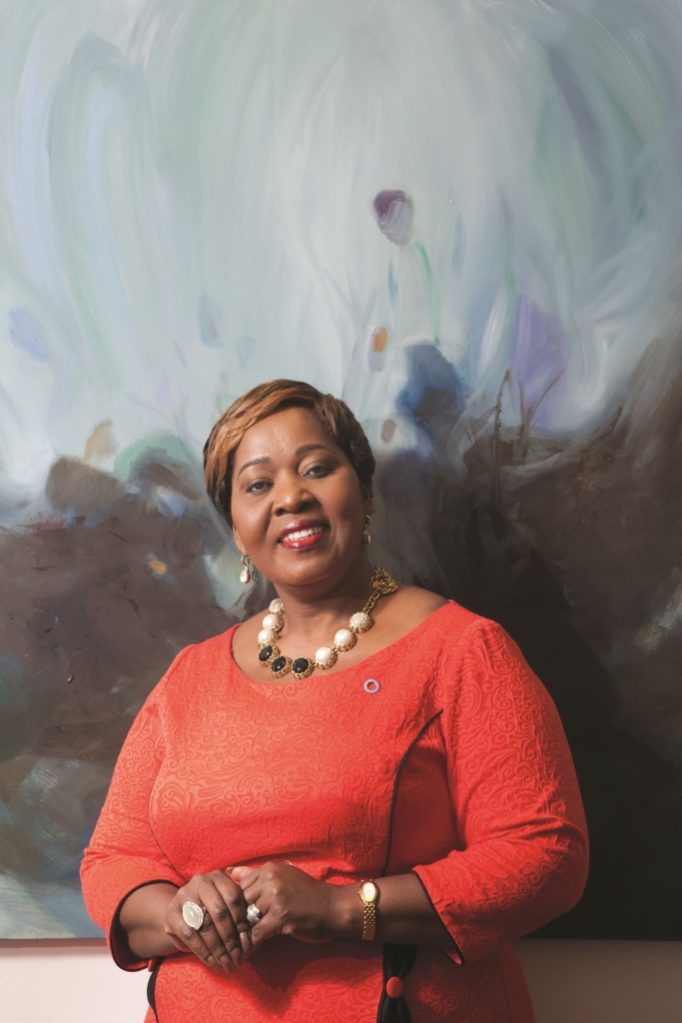At the tail end of Women’s Month in August in South Africa, we catch up with Bongi Ngema-Zuma, President Jacob Zuma’s fourth wife, in her unassuming office at the Bongi Ngema Foundation in Sandton in Johannesburg. We notice that her staff, including her discreet bodyguards, are all women.
Ngema-Zuma has received her fair share of negative publicity. The media has always questioned her participation in a polygamous marriage whilst wanting to be respected as a valid voice for women’s empowerment. We ask her and she is quick to point out that culture and empowerment are not exclusive of each other.
“As a woman you need to understand that you have multiple roles to play. You may be a chairman or CEO at work but remember that at home the man is the head and the woman is the heart. If you can understand this then you will understand that culture and empowerment are not different worlds,” she says.
The analogy suggests a certain degree of submission by women to their men in the family. But Ngema-Zuma is unequivocal women can and should take up more leadership positions in the workplace.
“We are just not fully represented at the corporate level. And even when we are, we still have to work at least 200% harder than a man in the same position to be seen as competent.”
Loading...
Ngema-Zuma believes the journey to increase female representation in the boardroom is difficult because government is not tough enough on corporate South Africa. She borrows from Sheryl Sandberg’s best-seller Lean In lamenting that before we can talk about leaning in at the corporate table, we actually have to get into the room and into the circles where decisions are made.
“Women need to learn to open the door for each other. This is what mentorship is all about after all. Someone needs to show you the door and help you get the skills so when the opportunity comes for you to lean in, you’ve got what it takes to do the job well.”
As we wrap up our conversation, she reaches for a framed photograph of her son. She cautions about focusing on and investing in girl children at the expense of the boys.
“I need my son to grow up in a society where he understands that being a man means he too is responsible for the protection and advancement of gender issues,” she says.
Ngema-Zuma believes the ultimate goal for gender activists is to build balanced societies where men and women are pulling together.
Loading...








